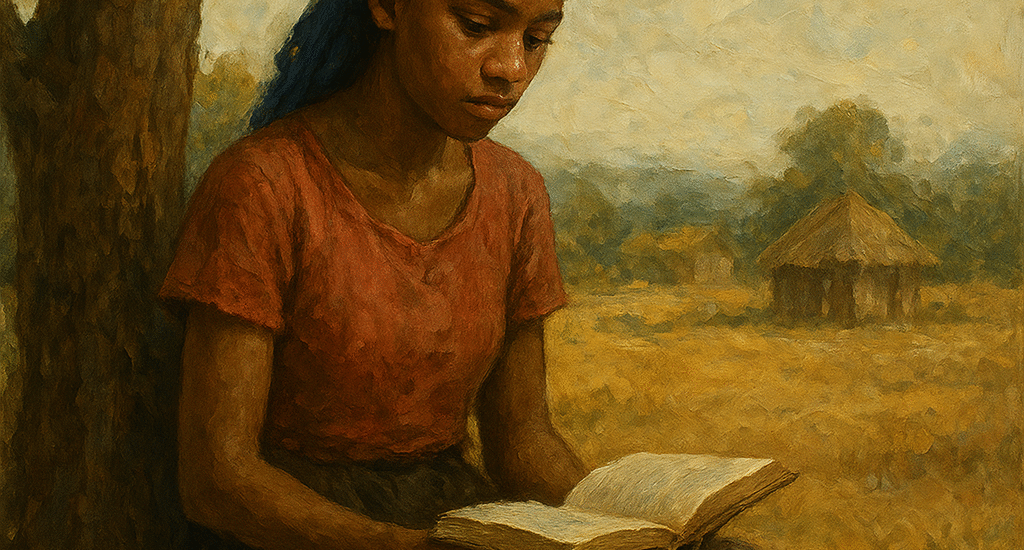Mariam grew up in a small village where life was measured in seasons—rainy season for planting, dry season for waiting. She was the first daughter in a family of six, and from a young age, responsibility rested on her shoulders like a heavy shawl. She fetched water, cooked, helped her younger siblings with schoolwork, and still dreamed of something more—a life beyond dusty roads and endless chores.
Her father was a quiet man, strong but worn down by years of farming. He never said much, but when he did, his voice carried weight. One evening, as Mariam sat under the mango tree reading a borrowed book, he told her, “Dreams are good, but remember—dreams don’t feed a family.” She swallowed the words like bitter medicine, too afraid to argue.
At school, Mariam’s teacher often said she was “different.” She asked questions others didn’t dare to ask. She stayed after class, devouring old textbooks until her eyes hurt. Her classmates teased her, calling her “professor.” But secretly, she loved the name—it gave her hope.
When she turned 17, Mariam got a scholarship to a city university. The day she received the letter, her mother hugged her tightly, tears streaming down her face. But her father sat quietly, staring at the letter as though it were both a blessing and a curse. That night, Mariam overheard him telling her mother, “If she goes, who will help us here? The farm won’t wait.”
Mariam left anyway. The city was overwhelming—bright lights, endless traffic, strangers rushing past like they were all late for something. She worked nights cleaning offices to afford food, while attending lectures during the day. Many times, she almost gave up, but each time she remembered her mother’s tears, her siblings’ hungry eyes, and the dream that had carried her this far.
One winter night, after finishing her shift, Mariam got a phone call that froze her blood. Her father had collapsed in the field. She rushed home the next day, her university books still in her bag. When she saw him lying weak on the mat, she broke down. He held her hand, rough and calloused, and whispered in a fragile voice, “I thought I was losing you to the world. But now I see—you’re fighting for us in ways I never could. Don’t stop, Mariam.”
That was the last real conversation they ever had. A month later, he was gone.
Years passed. Mariam eventually graduated, became a teacher, and returned to her village—not as the girl who left, but as the woman who carried her father’s unspoken pride. Whenever she stood in front of her students, she remembered his words, both the ones that hurt and the ones that healed. And she realized something: sometimes silence is not absence—it is love too heavy to be spoken.






